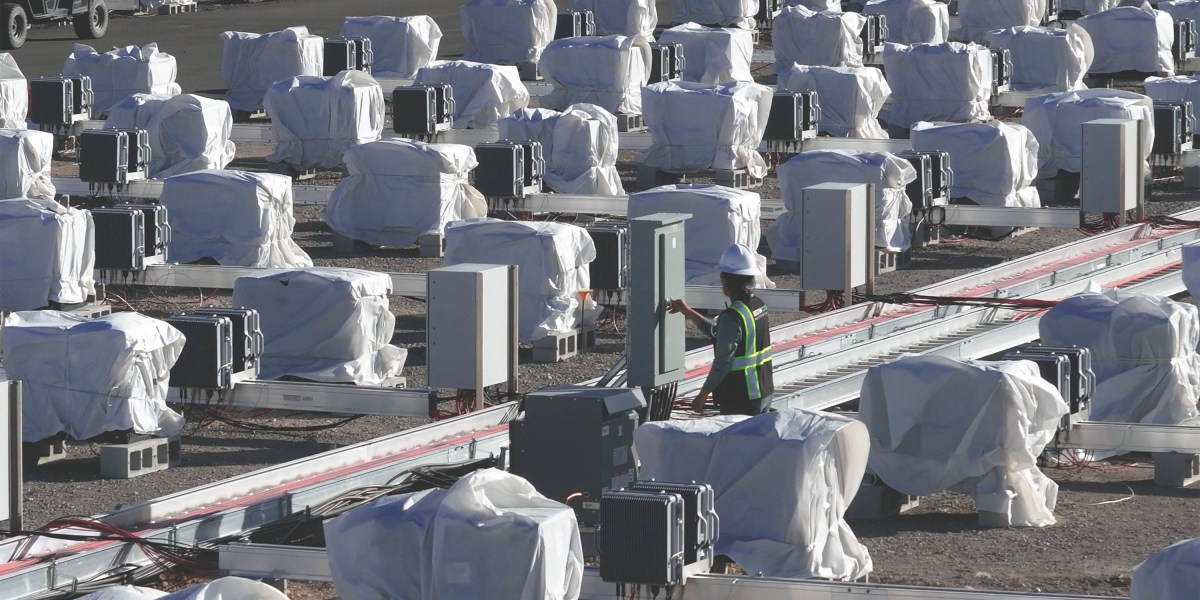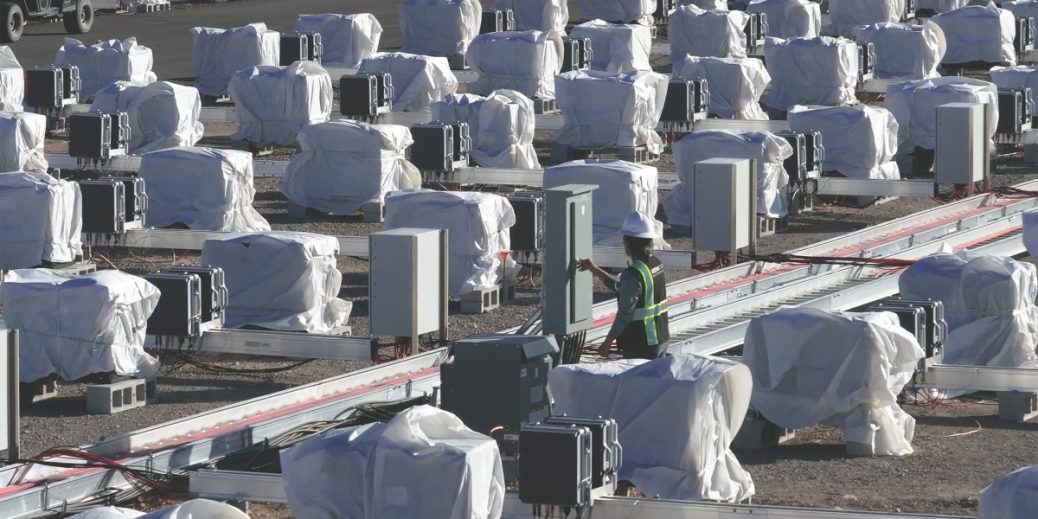
In a sandy industrial lot outside Reno, Nevada, rows of battery packs that once propelled electric vehicles are now powering a small AI data center.
Redwood Materials, one of the US’s largest battery recycling companies, showed off this array of energy storage modules, sitting on cinder blocks and wrapped in waterproof plastic, during a press tour at its headquarters on June 26.
The event marked the launch of the company’s new business line, Redwood Energy, which will initially repurpose (rather than recycle) batteries with years of remaining life to create renewable-powered microgrids. Such small-scale energy systems can operate on or off the larger electricity grid, providing electricity for businesses or communities. Read the full story.
—James Temple
We’re learning more about what weight-loss drugs do to the body
Weight-loss drugs are this decade’s blockbuster medicines. Drugs like Ozempic, Wegovy, and Mounjaro help people with diabetes get their blood sugar under control and help overweight and obese people reach a healthier weight. And they’re fast becoming a trendy must-have for celebrities and other figure-conscious individuals looking to trim down.
They became so hugely popular so quickly that not long after their approval for weight loss, we saw global shortages of the drugs. Prescriptions have soared over the last five years, but even people who don’t have prescriptions are seeking these drugs out online.
We know they can suppress appetite, lower blood sugar, and lead to dramatic weight loss. We also know that they come with side effects, which can include nausea, diarrhea, and vomiting. But we are still learning about some of their other effects. Read the full story.
—Jessica Hamzelou
This article first appeared in The Checkup, MIT Technology Review’s weekly biotech newsletter. To receive it in your inbox every Thursday, and read articles like this first, sign up here.




Recent Comments